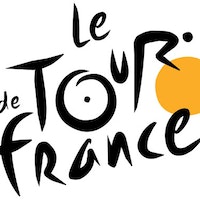In truth, we ran out of superlatives to describe Mark Cavendish years ago – but the 2016 Tour de France has seen journalists digging deep in the thesaurus once again. This is Cavendish at his very best.
In winning stage six on Thursday – his third triumph of 2016 and 29th since 2008 – Cavendish moved clear of Bernard Hinault in the list of all-time victories. Now only the great Eddy Merckx, who accumulated 34 wins during his five overall victories, stands clear of Cavendish.
As the Tour’s greatest ever sprinter, Cavendish has earned his right to be mentioned alongside both Merckx and Hinault, the two greats of Tour de France history, and has blazed a trail as a fast man.
– Who has won the most Tour de France stages? –
Life at the top for a Tour de France sprinter is often short. The fast twitch muscle fibres of a sprinter often burn twice as bright but half as long and wins are accumulated in bursts before that flame is extinguished.










Share